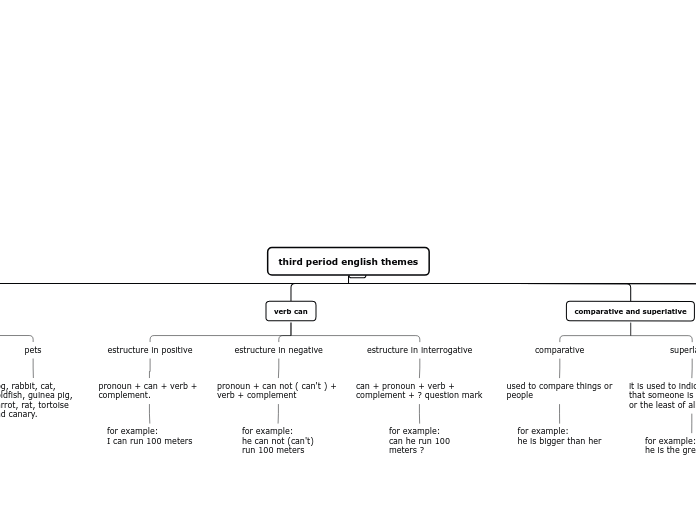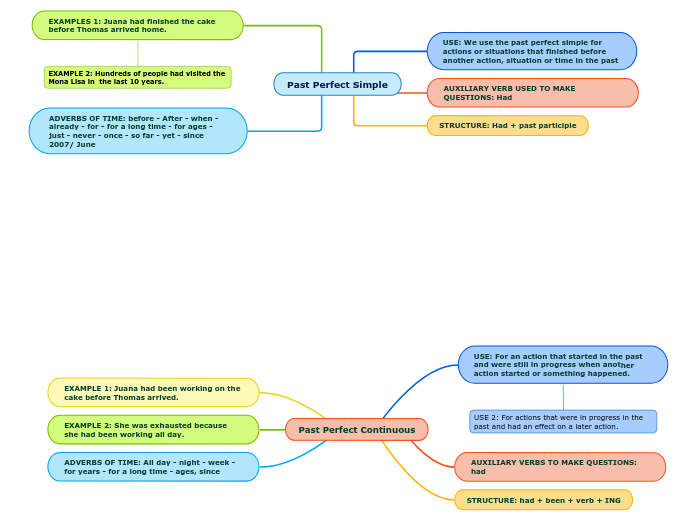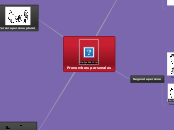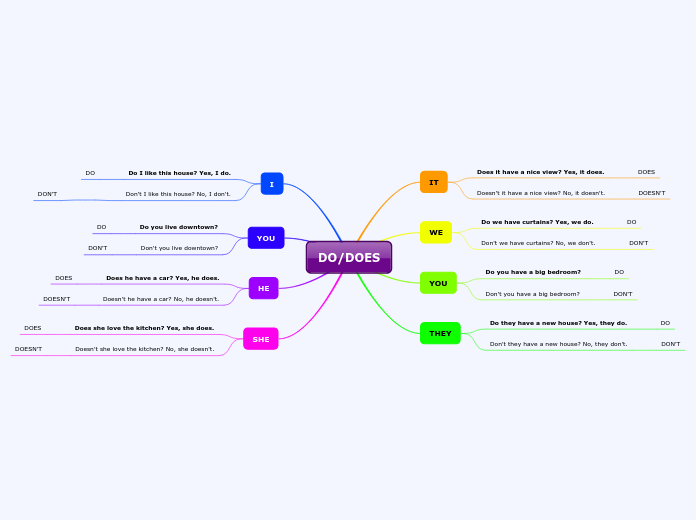third period english themes
pasado continuo
was / were + sub + verb + ing +
complement
for example:
were you runing in the
evenings
sub + was / were + not +
verb + ing + complement
for example:
you were not runing in the evenings
sub + was / were +
verb + ing + complement
for example:
i was runing in the evenings
regular and irregular verbs
irregular verbs
are those verbs that change when
onjugarsen in sentences
for example:
buy
regular verbs
they can be conjugated without modifying the root. When conjugating them in the present or future they do not suffer alterations.
for example:
work
comparative and superlative
superlative
it is used to indicate
that someone is the most of all
or the least of all
for example:
he is the greatest of all
comparative
used to compare things or
people
for example:
he is bigger than her
verb can
can + pronoun + verb +
complement + ? question mark
for example:
can he run 100
meters ?
pronoun + can not ( can't ) +
verb + complement
for example:
he can not (can't)
run 100 meters
estructure in positive
pronoun + can + verb +
complement.
for example:
I can run 100 meters
animals
pets
dog, rabbit, cat,
goldfish, guinea pig,
parrot, rat, tortoise
and canary.
sea
sea horse, down fish,
octopus, jellyfish, whale,
crab, starfish, dolphin and shark.
wild
kangaroo, badger, bear, fox,
pigean, monkey, lizard, panda,
deer, elephant, lion, koala and
squirrel.
domestic
chiken, horse, sheep, soat, mouse,
pig, duck, donkey, soose and cow.
simple future
usos
predictions, promises, instants actions.
estructure in interrogative
will + sub + infinitive verb +
complement + ? question mark
for example:
will she swim in the
sea
estructure in negative
sub + will not or won't +
infinitive verb + complement.
for example:
you won't (will not) swim
in the sea
estructure in afirmative
sub + will + infinitive
verb + complement
example of short form:
I'll, he'll, she'll, etc.
for example:
I'll(I will) swim in the sea









